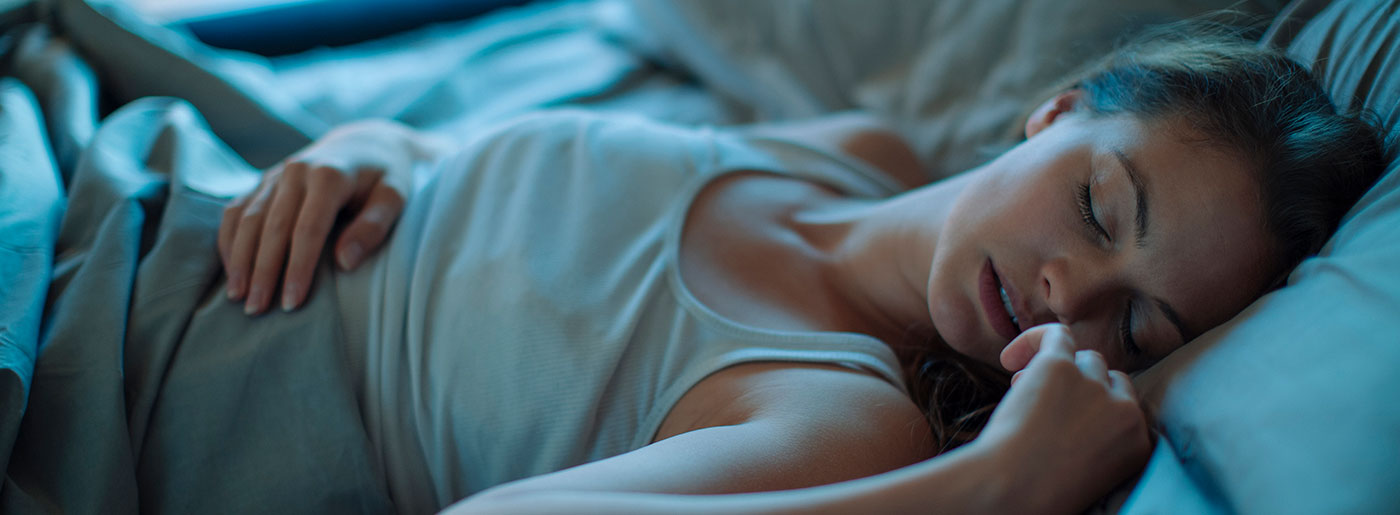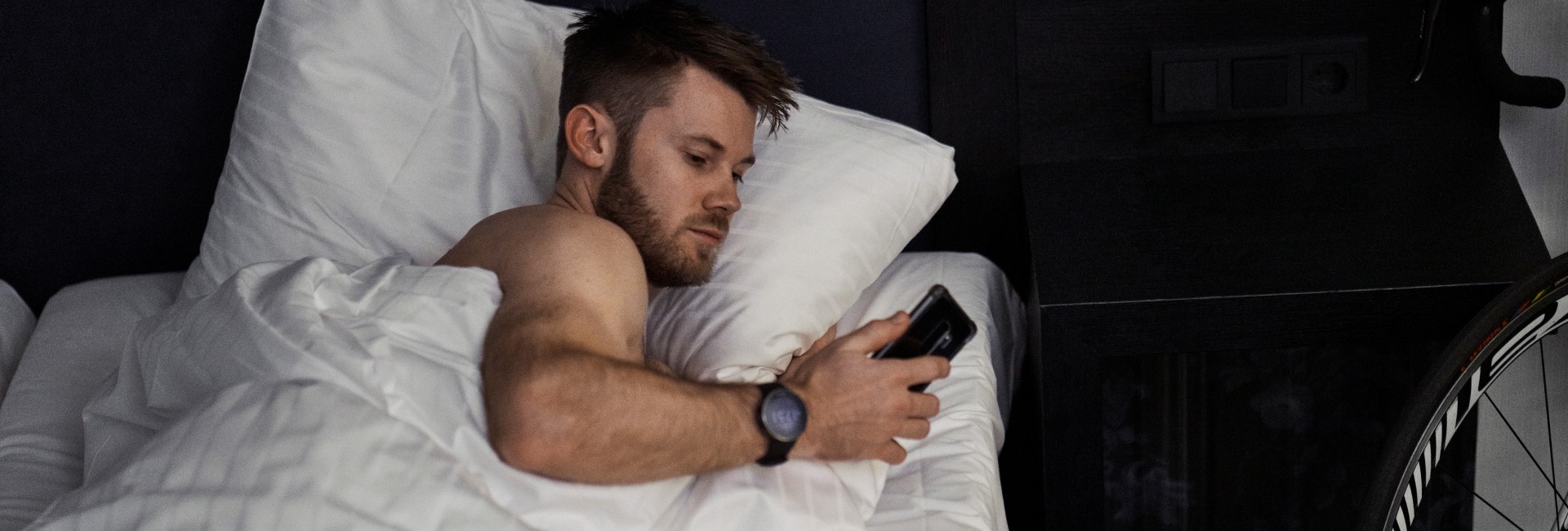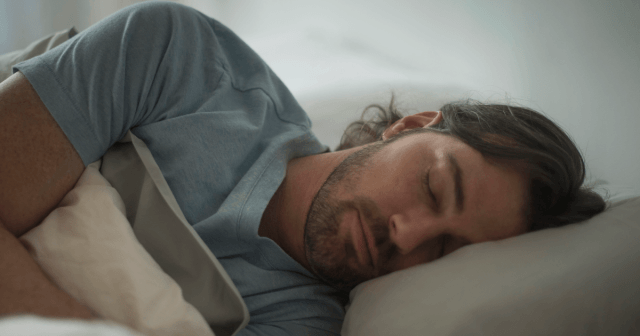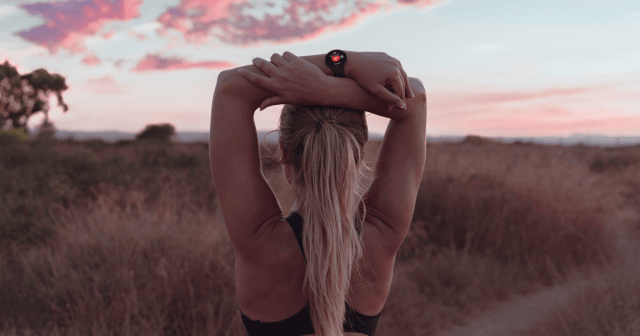Do you remember those long hot summer nights? That time of the year when days seemed endless, and you would stay late dining outdoors and have cocktails with friends while enjoying the summer breeze. It was lovely, wasn’t it?
Unfortunately, the past record-breaking hot summer also wreaked havoc on sleep. If you feel you slept less, and possibly worse, during the last few months, chances are that you really did.
Seasonal changes can impact sleep patterns and cause you to lay awake in bed at night. In summer, when it’s boiling out there, most of us are likely to spend a handful of nights tossing and turning on bed.
Anonymized data from Polar Flow users shows people get less sleep in the summer, especially in June. On average, our sleep time is nearly 15 minutes shorter in June. Typically, each year, in summer, we wake up and go to bed later, and sleep less like this graph shows.

Those 15 minutes might not sound like a big deal, but it’s enough time to derail your sleeping routine. Just think about it: if you lose 15 minutes of sleep every day, you’ll sleep nearly two hours less every week. That’s eight hours -or a full good night’s sleep- every month. As a result, those 15 minutes of sleep loss are enough can make a great difference on your alertness level the following day and alter you sleep patter, so eventually you start feeling the impact of sleep depravation on your mood, concentration, and productivity.
When we take a look at bedtimes and the time we wake up, the changes in our sleep routine during summer are evident:

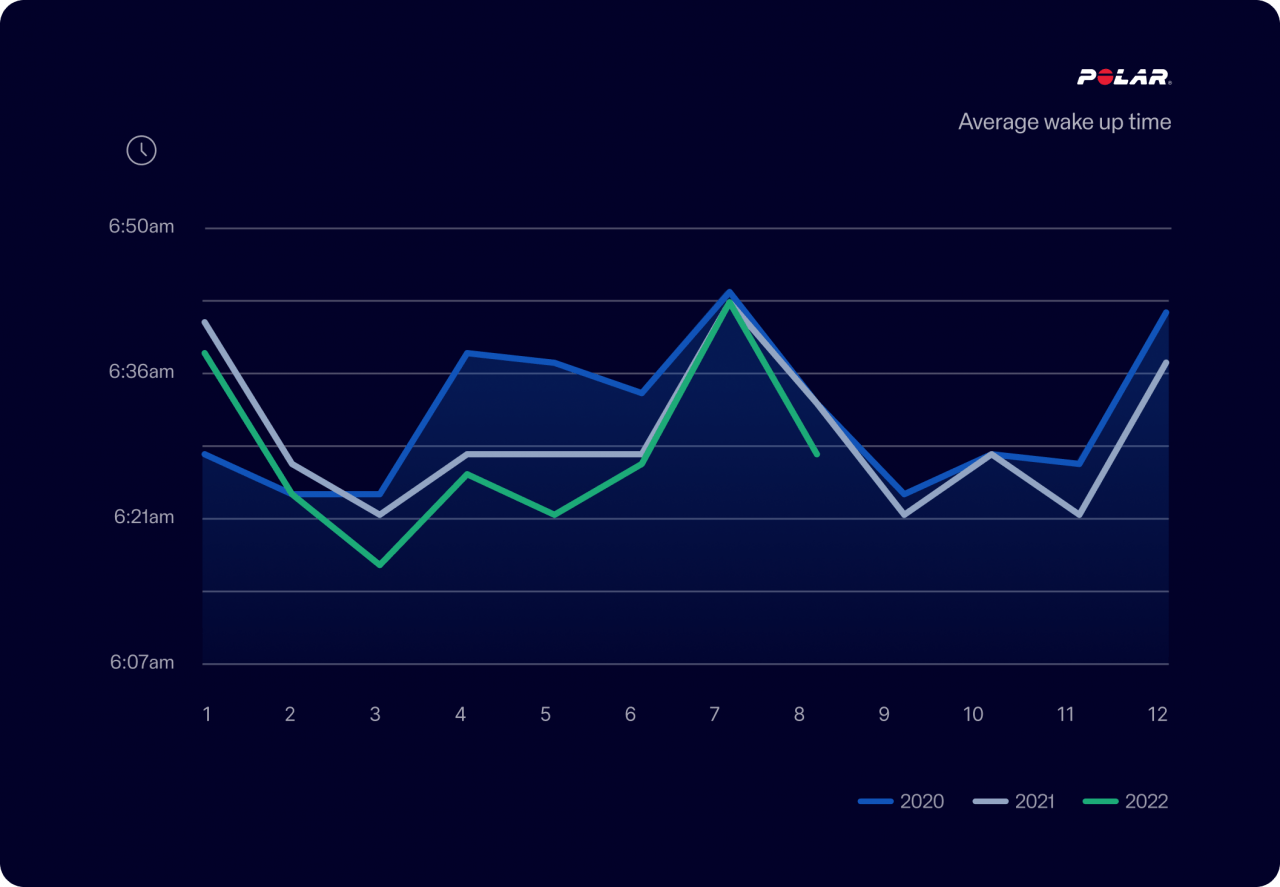
If insomnia got you summertime sadness, keep on reading to find out the reasons why we lose hours of sleep in summer and, more importantly, how to gain them as days get shorter and the nights darker.
How Summer Impacts Sleep
Long, bright days and warm weather make us feel more energized and improve our mood, so we’re inclined to think we need less sleep than during the dark, cold winter days. The truth is, however, our bodies require the same amount of rest and recovery throughout the year because sleeping well affects your mental and physical health. All throughout the year, sleep is important.
In summer, several factors can impact our sleep:
- More daylight. The extra sunlight we tend to get in the summer evenings suppresses the body’s production of melatonin, a hormone that plays a role in signaling to the body that it’s time to sleep. If you’re soaking up the sun later and longer during the summer versus the winter, you’ll likely have a harder time falling asleep at your regular bedtime.
- Warmer weather. High temperatures are a common cause of insomnia during the summer. In preparation for sleep, your body temperature starts to fall and continues to decline while sleeping. This internal cooling mechanism facilitates sleep and helps us achieve the restorative stage of sleep known as slow-wave (or deep sleep), in which the body repairs and regrows tissues, builds bone and muscle, and strengthens the immune system. When ambient temperature is high, it prevents our body temperature from falling as quickly as under ideal conditions, making it harder to fall asleep.
- A buzzing social life. Your lifestyle during the summer is likely to be quite different from your habits throughout the year. We tend to spend more time socializing. From dining and cocktails outdoors to picnics and summer festivals, our summer days are jam-packed with social activities, which can often translate into late bedtimes.
- Drinking and eating late. Eating when your body expects you to eat is an important part of your sleep health. Longer days and more socializing, however, can easily disrupt your mealtime schedule and, in turn, confuse your body’s internal clock–your circadian rhythm. When that happens, there’s a good chance you’re not getting quality sleep.
All these factors combined disrupt our regular schedules and in turn affect our circadian rhythm – our internal body clock. Many of these factors impact our regular schedules and in turn affect our circadian rhythm. Typically, this is the root cause of poor sleep.
How to Get a Better Night’s Sleep
Taylor Swift seized her extra time awake during periods of insomnia to write her latest album, Midnights, in which she tells the stories of 13 sleepless nights. Most of us, however, aren’t pop stars. You probably prefer to choose a restful shuteye over staring at the walls at midnight waiting for inspiration to arrive to write a song. So, let’s go over a few practical strategies that you can use during the day and the night to fix your sleep routine. Healthy daytime habits and lifestyle choices can easily help you get a better night’s sleep. So, grab a pillow, curl up, and read on.
The Golden Rule for a Better Sleep: Keep to the Schedule
Back to school and back to work, the fall season is fitting time to re-prioritize the importance of sleep. As we head into the fall months, we swap our swimming suits for our business casual outfits, returning to our regular schedule. Changing our schedule opens a window of opportunity to develop certain habits that promote a good night’s sleep.
“The golden rule is to try to keep the same bedtimes and wake-up times every day,” says Kaisu Martinmäki, Senior Researcher at Polar. “Try to go to bed and get up at the same time every day. That way your body learns to know when it is time to be asleep and time to be awake.”
Like most creatures on Earth, humans come equipped with a 24-hour internal body clock – a natural timing device that regulates the circadian rhythm – and influences important functions in our bodies, such as hormone release, eating habits, body temperature, and sleep patterns.
Which one is more important: the same bedtime or the same wake-up time? Keeping wake-up times consistent helps you also keep bedtimes consistent because sleep pressure builds when you are awake and helps you fall asleep at the right time in the evening.
Because our internal body clock coordinates our sleep-wake cycle, we want our sleep behavior to match our circadian rhythm. The purpose is to sync your body’s internal circadian rhythm with your sleep-wake rhythm and life. A regular schedule eases falling asleep, improves sleep quality, and makes you feel more refreshed and alert in the morning – your brain and body really do like routines.
Rise and Shine: The First Step Toward Better Sleep
It may seem counterintuitive, but the truth is a big part of preparing for a good night’s sleep starts in the morning, as soon as you wake up.
Just a few morning habits can promote a good night’s sleep:
- Wake up at the same time. The easiest way to develop a regular sleep-wake routine is waking up around the same time every day. However, quite often, like in summer, people do not have consistent sleep-wake rhythms (for example, they sleep in longer on weekends) and as a result, their sleep quality worsens.
- Seek light in the first few hours of the day. As soon as you wake up, open the curtains and let the morning light in. Sunlight tells your body a new day’s rising, boosting your alertness levels for the day ahead. Exposure to bright sunlight is one of the most powerful cues to wake up the brain. If you wake up before the sun rises or live in higher latitudes with less daylight in the autumn, switch on bright lights in your apartment or house. Bright light in the morning will also help you adjust your body’s internal clock to earlier wake-up times.
- Check in with yourself. Thinking about and keeping track of how you sleep will give you important insights into your sleep habits, so you can do any necessary adjustments. How do you feel in the morning? How did your actions from the previous night might have influenced your rest? Sleep tracking devices give you a full analysis of your sleep and how your body recovers overnight. Use these insights to learn from patterns in your own sleep and keep track of your bedtimes and wake-up times.
- Take a cold shower. Before we wake up, our body temperature begins to rise and continues to do so throughout the day. If you feel too hot at night, you’re likely to wake up. An increased body temperature during the day is associated with improved performance and alertness. That’s why cold showers – or just splashing your face with cold water – is a phenomenal way to feel awake and alert in the morning. Taking a cold shower or splashing your face with cold water will help you feel awake and alert. (By the way, here are additional benefits of cold showers).
The goal of these morning habits is to teach your body to feel very awake in the morning, so it knows it’s time to make the most out of the day.
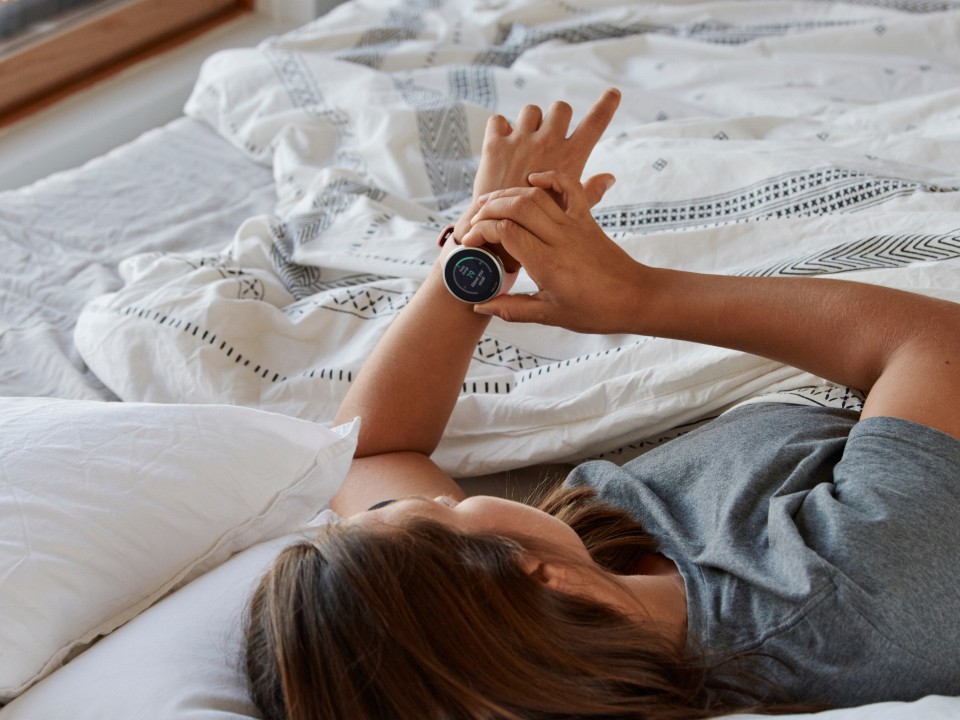
Everyday tools to teach your body to sleep
Developing a few habits in the morning is a great way to start building a healthy sleep-wake routine. Before you begin to set the mood for a good night’s sleep in the evening, there are a few other factors to consider throughout the day to control circadian rhythm and sleep.
- Pay attention to caffeine. It’s no news that caffeine is a major culprit of sleep insomnia. The effects of caffeine vary greatly from person to person, but the general rule of thumb is to avoid coffee and caffeinated drinks after 1 or 2pm.
- Be careful with naps. Most people tend to get a little bit sleepy in the afternoon, so a nap seems like the perfect way to boost our energy and alertness levels. Should you nap or should you not? That’s a question often asked. “It’s ok to nap… if you keep your naps short and time them correctly,” advises Kaisu Martinmäki. “Short naps in the afternoon don’t change the phase of your body’s circadian rhythm,” she adds.
- Plan your meal times well. Your body’s circadian rhythm regulates when you feel hungry and how you digest. “Eating your meals at different times each day can confuse your body clock, which in turn makes it harder for you to keep a regular sleep-wake schedule,” says Martinmäki.
- Exercise at the right time. In general, people who exercise regularly sleep better and feel less sleepy during the day. If you exercised regularly during the summertime, stick to your good routine. If you did not, try to start building an exercise habit that sticks. You do not need to exercise hard. Even light exercise such as walking and yoga improves sleep quality. What matter is to time your exercise wisely, for example, avoiding vigorous workouts three hours before bedtime. Exercise speeds up your metabolism, elevates body temperature, and stimulates hormones such as cortisol. These changes can interfere with sleep.
Should you nap or should you not? It’s ok to nap… if you keep your naps short and time them correctly, Short naps in the afternoon don’t change the phase of your body’s circadian rhythm.
Watch the sunset, wind down, SLEEP BETTER
The latter part of the day plays a crucial role in preparing you to sleep effortlessly. Like in the mornings, establishing a pre-bed routine can contribute to a high-quality sleep.
Before you lay down in bed, a handful of easy steps can pave the way for better sleep at night:
- Watch the sunset. If in the mornings, sunlight can boost your alertness and wakefulness, the early evening sun, when it starts descending in the sky, can tell your body that it’s time to sleep. The wavelengths of light when the sun sits in a lower angle signals your body that day is coming to an end and sleep is coming. It’s another anchor that tells your body where in time it is.
- Lower artificial bright lights. Avoiding bright lights helps you transition to bedtime because light can block your body’s production of melatonin. Similarly, you want to avoid TV, smartphone, or any other bright screen one to two hours before your bedtime.
- Avoid intense exercise. If you exercise in the evening, try to avoid vigorous workouts three hours before bedtime. Exercise speeds up your metabolism, elevates body temperature, and stimulates hormones such as cortisol. These changes can interfere with sleep.
- Keep your room cool and dark. Remember, when our body temperature increases, chances are we will wake up. A bedroom that’s too hot can make a big difference to your quality of sleep.
- Take a hot bath or sauna. Again, you can use this mechanism of temperature shifts to wake up or fall asleep. While cold showers boost your alertness in the morning, hot showers help you wind down at night. In the morning, our body temperature increases, but then, we tend to gradually cool by evening time to initiate sleep. A hot bath makes us feels cozy and relaxed, but the body reacts to it by releasing the extra heat, eventually causing a cooling off effect.
- Clear your head and wind down. It’s the end of the day, you start to feel tired. Your energy, your alertness, and your focus are at a low point. You’ve done enough for the day. It’s best to use the hours before leading to bedtime to just relax, stay calm, and wind down. You can try adding some relaxation methods, such as reading a book, meditating, or gently stretching. If you enjoy playing a musical instrument, making arts or crafts, try timing these activities close to your bedtime. They may help you wind down.

Good night, sleep tight
Finally, the sun turns out its lights, it’s time to say good night. You’re about to close your eyes and dream. If you’ve followed the recommendations above, you would have increased your chances of enjoying a restful night. Remember the golden rule: stick to a routine and a schedule that matches your internal body clock. When your sleep schedule is in harmony with your circadian rhythm, it’s easier to fall sleep and stay sleep.
A commitment to a good sleep is going to require some work and planning around. You may need to fit your social life into your sleep schedule rather than the other way around and consider a sleep routine that fits your work schedule as well.
Life happens, however. Not every day you can follow a strict schedule to optimize sleep. Some days, you might have a coffee with a friend, or might feel too alert in the evening. That’s ok. You can use some of the tools and strategies above to rectify and adjust.
The circadian rhythm varies greatly from person to person, so it’s also important that you try different options and decide what works for or against your sleep. For some people, music to ease into sleep works; for others, however, a few moments of meditation might be the best strategy. That’s why it’s important that each morning, you reflect on your sleep patterns.
If you liked this post, don’t forget to share so that others can find it, too.
Or give it a thumbs up!
I like this article
Please note that the information provided in the Polar Blog articles cannot replace individual advice from health professionals. Please consult your physician before starting a new fitness program.
